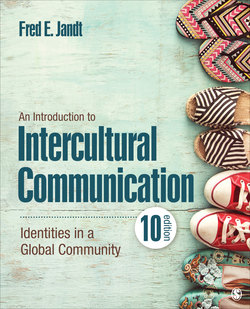Читать книгу An Introduction to Intercultural Communication - Fred E. Jandt - Страница 71
На сайте Литреса книга снята с продажи.
Focus on Theory 2.1 Is the Academic Discipline of InterculturalCommunication Intercultural?
ОглавлениеIs the intercultural communication field of study truly intercultural? Is there an ethical issue applying a Western perspective to other cultures? As discussed in this chapter, the discipline originated in the United States and has been developed in U.S. universities. Even scholars from the non-Western cultures have “failed to utilize the experiences of their own cultures … to demonstrate that they, too, have been able to see through the same eyes as those European and U.S. American scholars who have pioneered in this field” (Asante, Miike, & Yin, 2014, p. 4). Yoshitaka Miike (2003a) has raised the question about whether “the topics we pursue, the theories we build, the methods we employ, and the materials we read adequately reflect and respond to the diversity of our communicative experiences in a globalizing world” (pp. 243–244).
One major criticism of Eurocentric intercultural communication research has been that the discipline has facilitated the commercial interests of the dominant North American and European cultures with consumers in other cultures (see, for example, Chapter 13 in this text). Western theories of communication often begin with the expression of unique individuality and a means of demonstrating independence. From an Asiacentric perspective, then, communication is a process in which we remind ourselves of the interdependence and interrelatedness of the universe (Miike, 2007).
In a dialogue with Miike, Molefi Kete Asante asserted, “The future of intercultural communication must reside in the courage of scholars to engage indigenous knowledge from all areas of the world.… We must learn to embrace new paradigms and their expert concepts that grow from the wisdom and teachings of diverse peoples” (Asante & Miike, 2013, p. 12).
